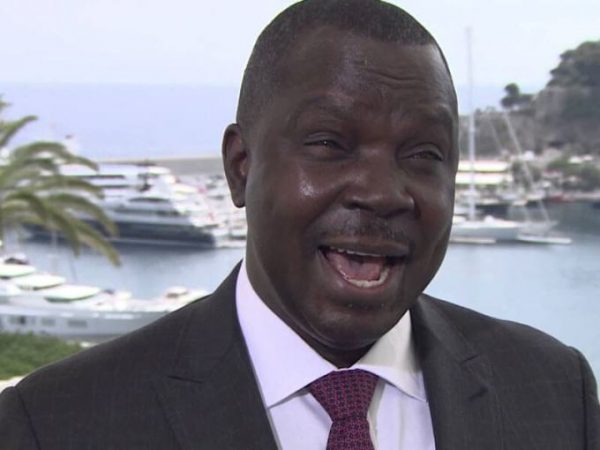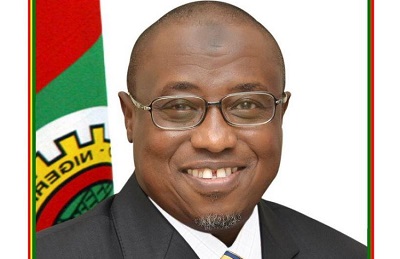Seplat Resolves $20.5m Dispute With Canadian Firm over Oil Block

- Norwegian oil firm, Panoro in talks to sell stake in Aje field in Lagos
Newton Energy Limited, a subsidiary of Seplat Petroleum Development Company Plc, a leading Nigerian independent oil and gas company listed on both the Nigerian and London Stock Exchanges, has reached a settlement with a Canadian firm, Crestar Natural Resources Limited, following a protracted dispute over the acquisition of Oil Mining Lease (OML) 25 from Anglo-Dutch multinational, Shell.
This is just as Oslo-listed international production and exploration company, Panoro Energy, was said to have entered discussions with third parties on selling its 16 per cent stake in the Aje oil, gas and condensate field offshore Lagos, Nigeria.
Crestar, which is owned by James Bay Resources Limited, together with its Nigerian partners, was the winning bidder in May 2014 for Shell’s 45 per cent participating interest in Oil Mining Lease (OML) 25.
The settlement between Crestar and Newton relates to proceedings in the English High Court over the deposit of $20.5 million currently held in an escrow account.
Seplat had in January 2017, in a filing at the Nigerian Stock Exchange, announced that proceedings had commenced at the English High Court against its wholly-owned subsidiary, Newton Energy, by Crestar relating to the deposit of $20.5 million.
The escrowed money was for the purpose acquiring an interest in OML 25 by Crestar, which Newton had an option to invest in, but put in escrow in July 2015, pursuant to the agreement reached with Crestar and the vendor on the final terms of the potential transaction.
The potential acquisition of an interest in OML 25 was initially identified in 2014 at which time the group placed the sum of $453 million as a deposit towards the potential investment.
However, after material delays, $368 million was returned to the group in July 2015.
According to Seplat, certain events then led to renewed efforts by the consortium to secure the asset and to the group providing the escrowed funds.
Seplat had added that the group paid $11 million to Crestar for past costs while a $45 million deposit remained with the potential vendor of the asset.
The company vowed to defend the claim vigorously in an English court.
But when the case came up thursday, the chief financial officer of Seplat, Mr. Roger Brown, told the court that the litigation had been substantially settled between the parties.
“Under the terms of the settlement the escrow monies will be split as follows: $10.0 million to Seplat and $10.5 million to Crestar. A provision equal to the share of escrow monies due to Crestar was already provided for in Seplat’s audited 2017 annual accounts,” Brown added.
After it won the bid for the acquisition of OML 25 from Shell and its partners, Crestar had deposited 100 per cent of the bid price into an escrow account with JP Morgan in London.
However, after NNPC attempted to block the sale and acquire the interest for itself under a 30-day contractual right of first refusal that had expired months earlier, Crestar commenced injunction proceedings in January 2015 at the Federal High Court, Abuja, to prevent the Shell from effecting the transfer to NNPC or anyone else.
Shell sought to discharge the injunction, but the Abuja court dismissed its application on March 6, 2015.
Crestar had also delivered a 30-day pre-action notice to NNPC, as required by Nigerian law in advance of any legal proceedings against the state-owned oil firm.
The Canadian firm had argued that the wrongful exercise of an expired pre-emptive right by the NNPC was the corporation’s first-ever exercise of preemption rights in the history of Shell’s divestment programme in Nigeria.
In addition to this unprecedented attempt to exercise an expired pre-emptive right, Crestar also alleged that the NNPC was attempting to fund its own acquisition with monies obtained from private third parties in exchange for lucrative interests in OML 25, stressing that this arrangement would almost certainly violate several Nigerian laws regulating government borrowing.
Meanwhile, Panoro Energy is in discussions with third parties on the sale of its 16 per cent stake in the offshore Aje oil, gas and condensate field in Nigeria.
According to international oil and gas media, Upstream, Panoro Energy is planning on selling its investment in the OML 113 oil field due to its high capital intensity, although the company remains objectively open to a farmout agreement.
Farmout is the assignment of part or all of an oil, natural gas or mineral interest to a third party for development.
The interest may be in any agreed-upon form, such as exploration blocks or drilling acreage.
Panoro partook in the initial Aje expansion which targeted the field’s oil resources, but as a small company, it was reluctant to invest in a future gas development that could cost about $400 million.
The proposed gas project could involve sending output to markets via the nearby West Africa Gas Pipeline (WAGP).
The Aje field was discovered in 1997 in water depths ranging from 100-1,500m.
Unlike the majority of Nigerian fields which are productive from tertiary age sandstones, Aje has multiple oil, gas and gas condensate reservoirs in the Turonian, Cenomanian and Albian age sandstones.
Five wells have been drilled to date on the Aje Field. Aje-1 and Aje-2 tested oil and gas condensate at high rates from the Turonian and Cenomanian reservoirs and Aje-4 confirmed the productivity of these reservoirs and discovered an additional deeper Albian age reservoir. Aje-5 was drilled in 2015 as a development well for the Cenomanian oil reservoir.
In March 2014, the federal government approved the Aje Field Development Plan (FDP) while in October 2014, the Final Investment Decision (FID) for the project was made.
Other than Nigeria, London-based Panoro holds high quality production, exploration and development assets in West Africa, namely the Dussafu Licensce offshore southern Gabon.







